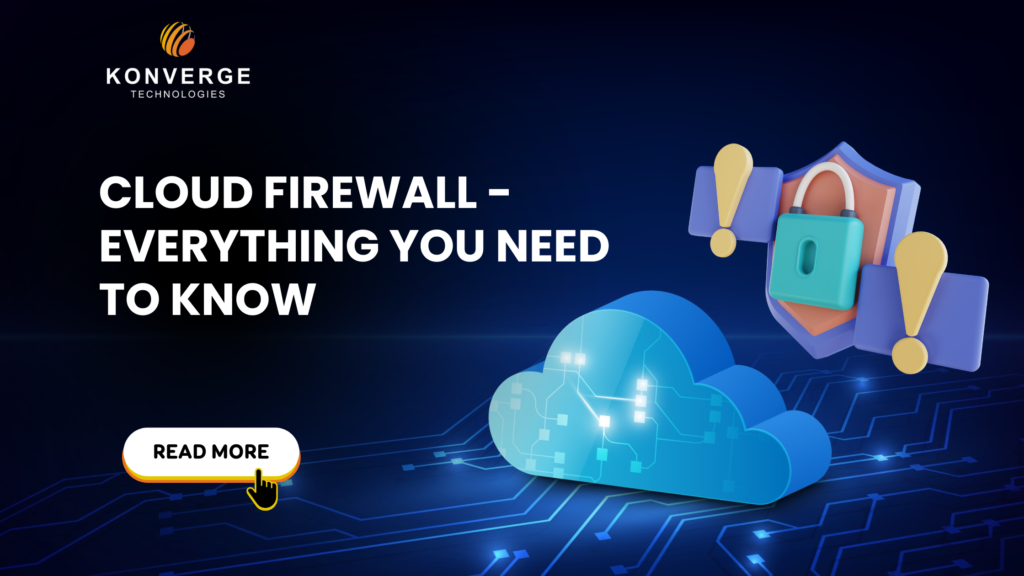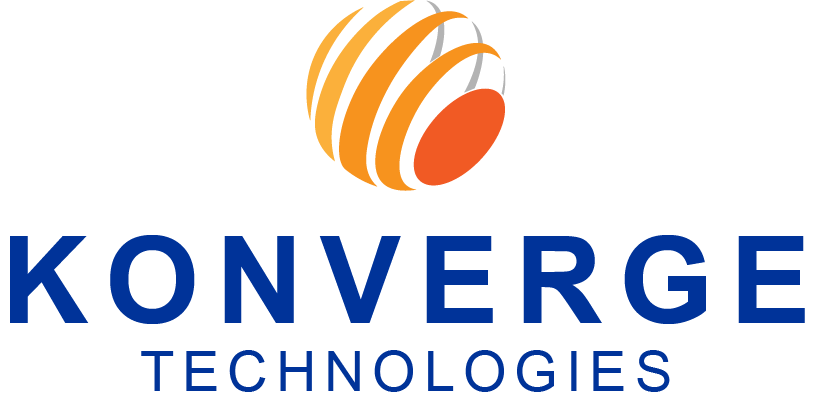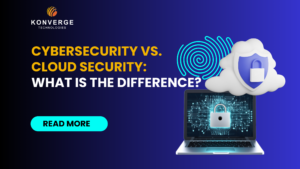
Cloud Firewall - Everything You Need to Know

In the rapidly evolving digital landscape, where data is a cornerstone of business operations, ensuring robust cybersecurity measures is non-negotiable. Among the key players in this defense strategy are cloud firewalls, offering a comprehensive shield against a myriad of cyber threats. This exhaustive guide delves into the intricacies of cloud firewalls, exploring their definition, types, advantages, and the crucial role of Firewall-as-a-Service (FWaaS).
What is a Cloud Firewall?
Definition of a Firewall
Traditionally, firewalls have stood as vigilant sentinels, patrolling the boundaries between trusted internal networks and the vast, often treacherous expanse of the internet. However, the advent of cloud computing has blurred the lines of the network perimeter, necessitating the evolution of security measures. Enter cloud firewalls – dynamic security solutions hosted in the cloud, acting as virtual fortresses around cloud platforms, applications, and infrastructure. Their primary objective is to create an impenetrable defense against unauthorized and malicious network traffic, adapting to the unique challenges posed by the cloud environment.
Need for Cloud Firewall
The cloud, serving as a repository for invaluable data and computational power, demands a higher echelon of security. Cloud firewalls emerge as the guardians of this virtual realm, akin to security guards protecting the assets of a bank. Whether it’s safeguarding Cloud CRM, securing Cloud Databases, or fortifying Email Cloud services, the need for an impregnable security mechanism is universal.
Types of Cloud Firewalls:-
Public Cloud Firewall:
Public cloud firewalls, strategically deployed in environments like AWS or Azure, offer scalability and availability advantages. These virtual network security appliances deliver functionality comparable to traditional hardware firewalls. However, their prowess shines in hybrid cloud deployments, where they exhibit superior scalability and availability.
Firewall as a Service (FWaaS):
FWaaS, built on the foundation of Next-Generation Firewall (NGFW) technology, presents a robust suite of advanced features. These include deep packet filtering, URL filtering, intrusion prevention systems (IPS), and DNS security. What sets FWaaS apart is its central management, eliminating the need for physical appliances and streamlining IT infrastructure. The management of firewall rules, security policies, threat intelligence, and the underlying infrastructure falls under the purview of managed service providers or cloud providers.
SaaS Firewall:
SaaS firewalls, strategically positioned in cloud data centers, function as vigilant gatekeepers, filtering incoming traffic and identifying potential threats. These firewalls play a pivotal role in flagging unauthorized access attempts and preventing malicious intruders from breaching the network. Variants such as Security as a Service (SECaaS) and Firewall as a Service (FWaaS) offer tailored security solutions, catering to diverse organizational needs.
Web Application Firewall (WAF):
A cloud-based service, WAF specializes in protecting web applications from a spectrum of cyber threats, including cross-site scripting (XSS), SQL injection, and other potential vulnerabilities. Beyond threat prevention, WAFs contribute to the enforcement of security policies, ensuring compliance with industry regulations and standards. The operational paradigm of WAF involves analyzing incoming traffic to a web application, and actively blocking requests deemed malicious or suspicious. This is achieved by comparing incoming requests against predefined rules that delineate acceptable traffic from potential threats.
Working on Cloud Firewall
The operational mechanics of cloud firewalls closely mirror their traditional counterparts. These guardians of the virtual realm identify and control applications, authorize access based on user-centric policies, and act as impenetrable barriers against both known and unknown threats. Deployed as virtual appliances within the cloud, these firewalls meticulously inspect and filter traffic circulating between virtual machines (VMs), containers, and other cloud resources. Their role extends to shielding the cloud environment from an array of threats, including malware, data leaks, and denial-of-service (DoS) attacks.
Advantages of Cloud Firewall
Deployment and Scalability:
Cloud firewalls boast easy scalability and deployment, minimizing disruptions to business operations. The ability to swiftly adjust to growing bandwidth requirements ensures seamless adaptation to evolving needs.
Access and Identity Management:
Providing granular control over access management, cloud firewalls distinguish between human and bot traffic. This capability is pivotal in mitigating the risks associated with unauthorized access attempts.
Updates:
Real-time automatic updates stand as a testament to the proactive nature of cloud firewalls. These updates, incorporating the latest threat intelligence, fortify the defense against advanced threat filtering systems.
Availability:
Operating around the clock, cloud firewalls offer unmatched availability. Built-in redundancies, encompassing power, HVAC, and network redundancies, contribute to a resilient infrastructure capable of withstanding various incidents.
Is FWaaS Different from Cloud Firewalls?
Yes, Firewall-as-a-Service (FWaaS) is indeed a distinct subset within the broader category of cloud firewalls. While both operate within the cloud ecosystem, FWaaS specifically derives its identity from Next-Generation Firewall (NGFW) technology. Noteworthy is the fact that FWaaS places the control of firewall rules, security policies, threat intelligence, and the underlying infrastructure in the hands of managed service providers or cloud providers.
Why Use FWaaS?
The adoption of FWaaS presents organizations with a myriad of advantages, simplifying IT infrastructure and streamlining security management. With no physical appliances to maintain, organizations can navigate the complex landscape of change management, patch management, and outage coordination with unparalleled ease. FWaaS offers a seamless avenue for setting and enforcing consistent security policies across the organizational spectrum.
Main Benefits of Cloud Firewall/FWaaS
Malicious Traffic Blocking:
Cloud firewalls excel in preventing malicious web traffic, including malware and the activities of nefarious bots. Some FWaaS products go a step further by incorporating mechanisms to block sensitive data from unauthorized outbound transmission.
Network Integration:
The absence of network choke points is a distinctive feature of cloud firewalls. Their seamless integration with cloud infrastructure ensures a harmonious coexistence, facilitating efficient traffic management.
Multi-Cloud Protection:
A pivotal advantage is the capability to protect multiple cloud deployments concurrently. As long as the chosen cloud firewall vendor supports each cloud, organizations can extend a blanket of security over diverse cloud environments.
Rapid Scalability:
In the dynamic landscape of digital traffic, the scalability of cloud firewalls is a critical attribute. They can rapidly scale up to handle increased traffic, ensuring consistent protection even in the face of burgeoning network demands.
Vendor-Managed Updates:
The burden of maintaining cloud firewalls is lifted from the shoulders of organizations. Vendors take on the responsibility of handling all updates, ensuring that the defense mechanisms remain current and resilient against emerging threats.
Difference Between Cloud Firewall and Next-Generation Firewall (NGFW)
Next-Generation Firewalls (NGFWs) represent a progression in firewall technology, incorporating advanced features not present in their predecessors. These features include:
Intrusion Prevention System (IPS):
An NGFW is equipped with an Intrusion Prevention System that actively detects and blocks cyber attacks, enhancing the overall security posture.
Deep Packet Inspection (DPI):
NGFWs take packet inspection to the next level by scrutinizing both headers and payloads, providing a more comprehensive means of detecting malicious content.
Application Control:
NGFWs exercise granular control over individual applications, enabling organizations to enforce policies that govern application usage.
While cloud firewalls may incorporate some NGFW capabilities, the distinction lies in the fact that NGFWs are not inherently cloud-based and can also be deployed on-premise.
FWaaS in a SASE Framework
Secure Access Service Edge (SASE) represents a paradigm shift in network security architecture. This innovative framework combines networking functions with security services, and FWaaS plays a pivotal role in this integration. Operating at the network edge, SASE offers a holistic approach to security, simplifying deployment and maintenance through a unified vendor-driven model.
Enhancing Workload Security with Konverge Technologies
In the pursuit of fortifying cloud-native environments, solutions such as Konverge Technologies come to the forefront. Konverge Technologies offers universal firewall integration, providing granular workload-based security controls. This comprehensive suite includes:
Intrusion Detection and Prevention:
Konverge Technologies’ solution incorporates an Intrusion Detection and Prevention System, leveraging threat feeds to identify the source of malicious activity. It actively creates a security moat around critical workloads, deploys honeypots to thwart zero-day attacks, and automatically quarantines potentially malicious workloads.
Deep Packet Inspection:
Deep Packet Inspection (DPI) is a critical component of Konverge Technologies’ offering. This functionality scrutinizes network data with precision, performing signature-based detection of potential threats. Additionally, DPI enriches IP-based network packet information with container and Kubernetes metadata, offering insights into the source and destination of packets.
Application-Level Security and WAF:
Konverge Technologies contributes to application-level security by enforcing controls on east-west traffic. It incorporates a Workload-centric Web Application Firewall (WAF) that utilizes Modsecurity, an open-source WAF with a core rule set addressing common security risks identified by the Open Web Application Security Project (OWASP).
Universal Firewall Integration:
The Calico Egress Gateway, offered by Konverge Technologies, ensures universal firewall integration. This feature enables Kubernetes resources to securely access endpoints behind a firewall, extending the existing firewall manager and zone-based architecture to the cloud-native domain.
In Conclusion
A cloud firewall is not merely a security feature; it’s a strategic imperative in the era of cloud computing. With the right cloud-based security solutions, businesses can fortify their digital assets, allowing them to harness the full potential of the cloud with unwavering confidence. As technology continues to evolve, the role of cloud firewalls and their derivatives like FWaaS will become increasingly pivotal in maintaining the delicate balance between accessibility and security. Embracing these innovations ensures that businesses can navigate the digital landscape with resilience and agility. The next section will continue to explore additional facets of cloud firewalls and delve into their role in contemporary cybersecurity landscapes.
For organizations seeking unparalleled cloud security solutions, Konverge Technologies stands as a beacon of innovation and reliability. Elevate your cloud firewall and FWaaS requirements with our cutting-edge solutions. Contact Konverge Technologies today to embark on a journey of fortified cybersecurity, enabling you to navigate the digital landscape with resilience and agility.



